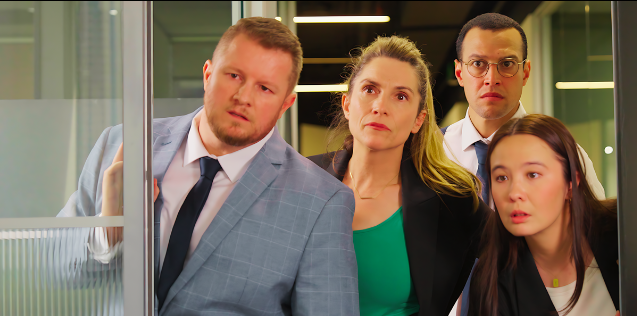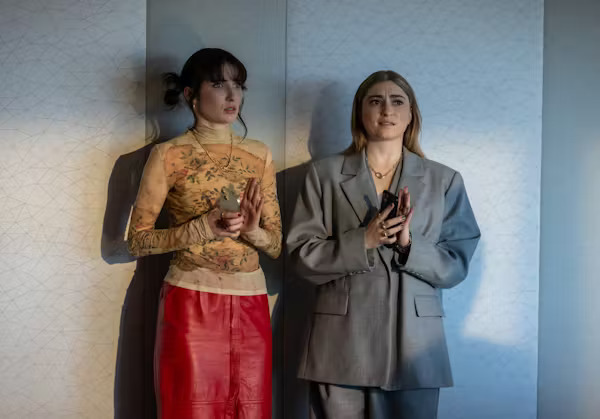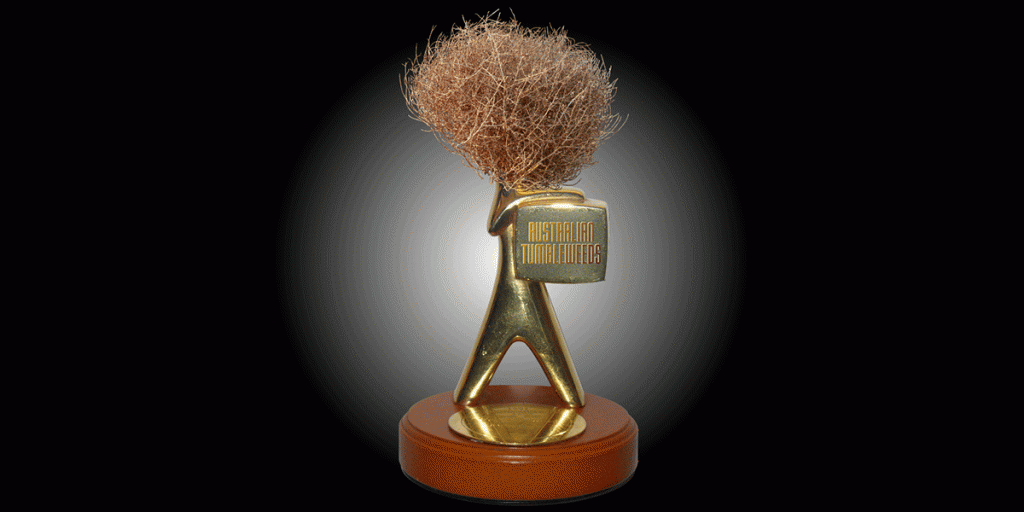Australian Tumbleweeds
Might as Well Get This Over With
The Weekly is back and who gives a fuck. Maybe someone somewhere outside the upper levels of ABC management is excited about the return – for an eleventh season – of “Bitchy News”. We seriously doubt it. Have you ever heard anyone discuss anything they’ve seen on The Weekly? We haven’t, and we know people who’ve worked on it.
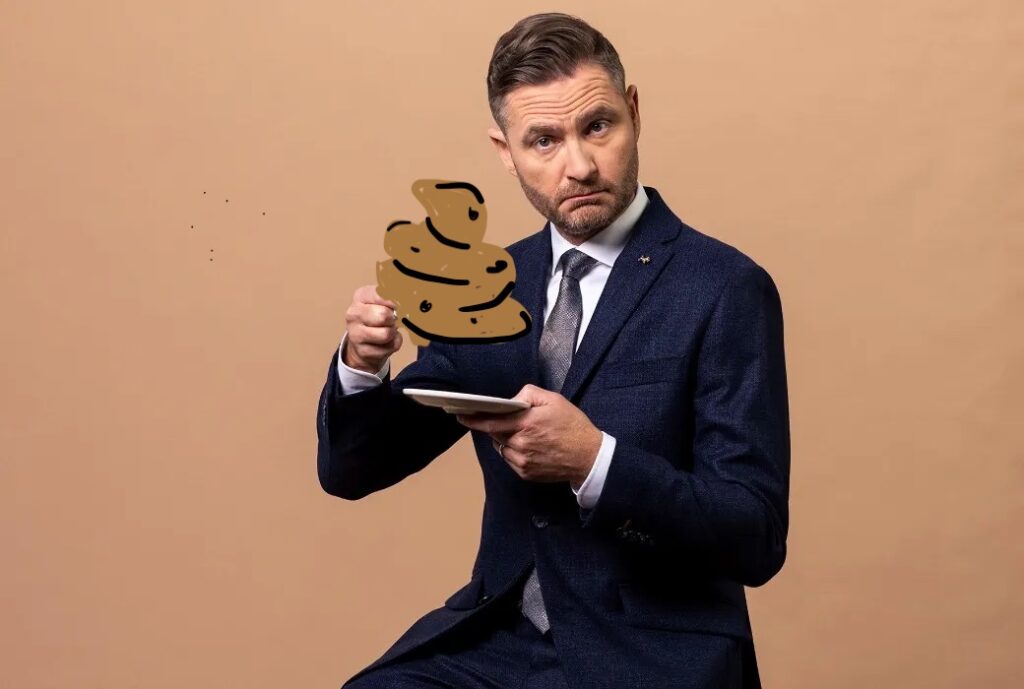
Time for a contractually mandated moment of balance. A big part of what makes The Weekly such a piece of shit comes from factors outside the show itself. If it aired at, say, 10.30pm on a Sunday night, the lowered expectations that come from a graveyard timeslot might possibly make the format seem more entertaining. If it was hosted by, say, a pile of old laundry, then at least it wouldn’t be hosted by Charlie Pickering. If civilisation collapsed and it was the only form of entertainment left, at least the survivors would have an enemy to unify against. And so on.
The ABC’s topical comedy – we can’t even lump this one under the extremely broad term “satire” – has always been a bit hit-and-miss. But as it currently stands, The Weekly is barely worthy of the term “work experience project”. Having a host make fun of news clips only requires a decent host and decent jokes; The Weekly has neither.
As a host, Pickering is a smug smartarse when reading the news, and an easily confused low-status dimwit when doing anything else. It’s not that we don’t enjoy on some level the way Rhys Nicholson treats him dismissively. There’s just no clear comedy reason for the shift. We’re meant to cheer Pickering on when he sticks it to the man, and then side with his guests when they treat him like shit?
You know what? Who cares. Pickering is a crap host, but it’s not like Daryl Somers wasn’t worse and his career spanned decades. But occasionally Daryl had decent material. Pickering gets gear like having Nicholson ask him what his favourite race is and he says “either The Jews or the Tour de France”. Which okay, let’s break this one down:
Maybe the joke is meant to be that Pickering has misunderstood the question in a hilariously inappropriate fashion. So why does he give two answers? Maybe the joke is meant to be that Pickering has understood the question and has given a hilariously inappropriate answer. So why does he give two answers? The set up for the joke is clearly pointing to the comedy answer being “the Tour de France”. So why does he even mention that his favourite race is the Jews*?
Also, and this is one of the things that has consistently given us the shits about The Weekly pretty much since it’s inception, why would anyone with the slightest awareness of what’s going on in Australia and the world today think that now is a good time to make a confused throwaway joke about race?
Not that you can’t make jokes about race, or any other sensitive topic if that’s what floats your boat. But when people are doing it tough, a decent comedian’s job is to make fun of the people making life hard for others. Or at least, stop and have a think about what kind of jokes you want to make on the subject.
The Weekly is stuffed gullet to gills with lazy jokes about how all politicans are basically the same and rich people are a bit silly and reality television is trashy and breakfast television is a great place to find enough material to fill out the rest of the show. The result is beneath you, us, and probably even Charlie Pickering.
The only difference is, he gets a six figure salary out of it.
.
*you can probably figure it out
If You Want Blood, You Got It
Press release time!
Fresh Blood pilots premiere on the ABC this April
ABC and Screen Australia are thrilled to announce Fresh Blood pilots, Urvi Went to an All Girls School and Westerners, will premiere Wednesday 9 April on ABC iview.
Both uniquely hilarious, the pilots are part of the joint initiative which supports emerging Australian talent and innovative storytelling.
Urvi Went To An All Girls School is a coming-of-age comedy about one teen girl’s survival, with disastrous and hilarious consequences. Urvi (Urvi Majumdar) is an awkward, unpopular 16-year-old girl entering Year 11, at the painfully academic, selective public school Grogan Girls High. She desperately wants to become a famous actress, and dreams of being noticed by Hot Ryan, the hottest Year 12 at Grogan Boys.
Urvi’s school year looks doomed. Her little sister Maya has skipped a grade and joined forces with Urvi’s school bullies, her parents want her to become a doctor and the only boy she knows is her dad. That is until a Grogan Girls alumni turned soap actress named Sophie turns up out of the blue to direct the Grogan Girls and Boys combined school musical. Urvi finally sees a path to stardom – and sacrifices her other subjects (and her sanity) to pursue her dream.
Westerners follows three young diaspora adults navigating the chaos of life in Western Sydney, where even the simplest tasks spiral into the surreal.
Jackie (Natasha Cheng), a struggling artist, makes a deal with the Devil to cure her creative block. Taz (Sana’a Shaik) must choose between living with share house mould or even worse: moving back in with her parents. Dulla (Ubai Dahoud) can’t walk down the street without being chased by a horde of women who all want to play matchmaker. Between existential crises and absurd misadventures, they’re just trying to live their version of an ordinary life.
Both pilots will also make their broadcast debuts on ABC TV with Urvi Went to an All Girls School premiering Wednesday 9 April at 9pm and Westerners on Wednesday 16 April at 9pm.
Yeah, you lost us at “both uniquely hilarious”.
But sure, bring it on – it’s not like comedy musicals and aimless young people aren’t sure-fire comedy gold hang on I’m just being handed a note it seems this joke format is so tired it also qualified for a Fresh Blood pilot. Hurrah!
Hughesy Loses It
Yesterday’s episode of Australian Story focusing on Dave Hughes was business as usual. This kind of show – at one point Hughes was driving around Warnambool pointing out his old haunts like an episode of Julia Zemerio’s unlamented Home Delivery – is all about promoting a certain image of the celebrity involved. Is Dave Hughes a loveable family man with a troubled past he’s struggled to overcome? Fuck yeah he is!
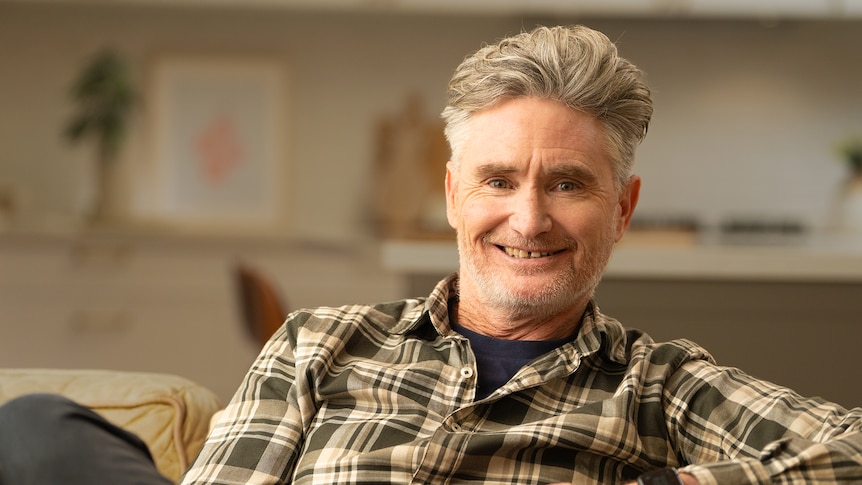
Unless, of course, you were actually paying attention. Hughesy’s rep has taken a bit of a battering in recent years, mostly from own goals like his many pro-Covid rants during Victoria’s lockdowns or his swooping in to buy one of the houses on The Block seemingly on a whim. Pro tip: regular fair dinkum Aussie blokes don’t usually have a couple of million burning a hole in their back pocket when they just happen to be driving past a building site.
But you don’t get to be at the top of the Australian comedy tree for decades at a time without knowing a thing or two about media management. This year we’ve already seen Hughesy on I’m A Celebrity being likable while eating bugs in the jungle (not a euphemism). In a fortnight or so he’ll be doing his thing on the new series of Taskmaster, just as he’s settling in for a string of gigs at the Melbourne International Comedy Festival (just don’t be talking in the front row). What better time to remind everyone that yes, he’s a loveable family man with a troubled past he’s struggled to overcome?
The premise of this episode was that Hughesy had given up the booze only to replace it with a relentless drive to succeed. Sounds like a good trade! By pretty much every possible metric, he has succeeded. So with nowhere to go as far as the end of the story was concerned, all the new news came at the start. If you didn’t think much of Hughesy before, guess what? You’re a heartless bastard: he survived a harrowing childhood where his drunk gun-toting dad made it an open question whether he’d live or die!
Anyone still breathing would feel more than sympathetic towards someone going through that kind of shocking ordeal. Anyone who’s followed Hughesy’s comedy career would be like “huh”. It definitely helps explain his relentless drive to succeed. But considering he’s obviously succeeded in pretty much every way possible, that’s the end of that. Maybe if he was a very different kind of comedian we’d be like “wow, can’t wait to see how he addresses his personal struggles in his act”, but c’mon: it’s Hughesy.
Beyond that, we got plenty of the usual. Hughesy managing to be both dux of his high school and spending a year working in an abattoir? Hughesy’s old school mates who all somehow look years – decades – younger than him? Someone saying with a straight face “that was when Hughesy found his comedy voice” without immediately going “you know, ehhhhhhhhhhhhhh O’m angriiiiiii”? Hughesy’s big break in making the leap from community radio Triple R (where he was a weekly guest) to the newly launched Nova FM as part of their “Hughesy, Kate and Dave” breakfast team? Hang on, what happened to Dave?
And that’s the problem with this kind of promotional video. There’s always a piece of the puzzle that doesn’t quite fit. Maybe it’s the way the breakfast radio promo photos mysteriously go from three wacky funsters to two. Maybe it’s Hughesy’s wife saying “he’s got this bogan persona, but really he’s a vegan who meditates”. At least he spends lots of time with the kids now, unlike – it’s hinted at – years ago when they were little and he was even more driven to succeed.
That bit was presumably left in because it fits with the “Hughesy’s got problems” narrative. Or at least, it does until you remember his half hour comedy special Hughes the Boss, which aired on Nine in 2016 and revolved largely around footage of his kids. Being too busy to hang with the kids because you’ve got a Footy Show appearance to prepare for is one thing; still finding time to do a half hour special on how annoying they are is another thing entirely.
So, on the one hand Hughesy has built a massively successful comedy career on being just a regular Aussie bloke constantly enraged befuddled by suburban life. On the other, he’s actually a millionaire teetotal vegan who’s been mainlining inspirational quotes since he was a teen and thinks being driven to succeed is a likable trait. But is it?
When Rove tells us that Hughes was on the outer with the cool kids in the Melbourne comedy scene back in the mid 90s because he cracked “confronting” jokes about sex workers, anyone who knows anything about the 90s is like “hang on, back then Greg Fleet was doing entire shows about being a junkie while also being a junkie and everyone loved him”.
Then again, Fleet doesn’t have soulless staring dead eyes that are gaping portals into a hell devoid of all meaning or sanity, which probably counts for something.
Vale Optics, Hello Full Story – Battle of the PR sitcoms
Just as Optics, a sitcom about a PR company which finds it has some problems close to home, finishes up on the ABC, Troy Kinne has released Full Story, a sitcom about a PR company which finds it has some problems close to home. Which means we’re one sitcom about a PR company which finds it has some problems close to home away from it feeling like that time when everyone in comedy seemed to be trying to make an Australian version of Curb Your Enthusiasm. And we know how well that turned out. *
But enough snark from us. What’s probably more interesting about the two shows is that while Optics is exactly the sort of sitcom you’d expect the likes of Charles Firth, Jenna Owen and Vic Zerbst to make, we’re guessing there weren’t a lot of people who had “satirical sitcom” on their Troy Kinne 2025 bingo cards. It just doesn’t seem like his style. And yet Full Story is a satirical sitcom that is very much in his style.
Whereas Optics had some pretty good gags about how women, especially young women, are treated in the workplace – including a male client who seems to not hear all female voices – Full Story features jokes about women where women are the butt of the jokes. Which isn’t wrong in and of itself – women are as ridiculous as anyone else – but is more than a little questionable when the jokes are about being hormonal and the people who wrote those jokes are men. And having a woman deliver those gags doesn’t make them okay either, guys!
Still, that’s not to say that Optics is necessarily the better of the two shows. Both Optics and Full Story, while funny in parts, suffer from the fact that they’ve set up the central spin doctor characters as the heroes of the story, trying heroically to overcome various PR problems. Except…why should we care when neither they nor their well-off, entitled and downright corrupt clients are remotely sympathetic?
In better satirical sitcoms, like The Games or Utopia, the audience could side with John, Gina and Bryan, or Tony and Nat, and want them to succeed, because they spent most of their time being screwed over by people more senior than them. And whether you work in a government body or not, this is something that happens in a lot of workplaces, which makes it relatable. And makes the show funny because it’s relatable.
Ensuring the audience cares also works when the central characters are less downtrodden, like in Frontline. Here, we see everything that’s true and decent, as personified by assistant producer Emma, being constantly stamped on by the tabloid current affairs jackboot. We also learn quite a lot about how the media works, not something you can say about Optics or Full Story, because in 2025, any semi-media literate member of the public can see through a social media influencer or a dodgy footballer setting up a charity to launder his image.
In the end, the only thing that could save Optics or Full Story is if they contained a lot of great gags. Neither do. Optics, like all ABC sitcoms these days, spends way too much time sacrificing comedy in favour of hitting various dramatic plot points, while Full Story relies on cheap gags and stunt casting (hello, Sophie Monk!) for many of its laughs.
Still, while if you haven’t enjoyed Full Story, you’re not obligated to donate to Kinne’s crowdfunder to keep it going, Optics ends with the suggestion that it’ll be back for a second series, in which the PR wonks will spend a bunch of time defending the reputation of their deceased, Jeffery Epstein-esque boss. Should be hilarious.
* To be fair, Peter Moon’s Whatever Happened To The Guy wasn’t the worst thing ever.
The Role of a Lifetime (Just Not in Comedy)
We’ve complained about the way comedy is used as a marketing tool for a long time now. Your new drama is a bit of a dud? Your panel show is a chore? Your game show just plain sucks? Call it a comedy! People love comedy! And when they realise there’s no laughs to be found? Oh well, at least the first episode rated okay.
Seriously, if you’ve ever tried to wade through the various production documents and funding announcements that are the lifeblood of the Australian television industry – because it’s not like they’re making these shows for an audience – the phrase “comedy drama” comes up so often it’s a joke.
Which is handy, because none of these shows actually feature any jokes. They’re just duds that sound so boring the only way they can trick anyone into watching them is to claim that there’s some entertainment (that’d be the comedy) buried deep within.
What does all this ranting have to do with The Role of a Lifetime? You know, the new ABC show that promises to explore “how to parent in the rapidly changing world using scripted comedy sketches featuring a sitcom family to play out the most current and urgent parenting challenges facing Aussie mums, dads and caregivers” oh dear god no.
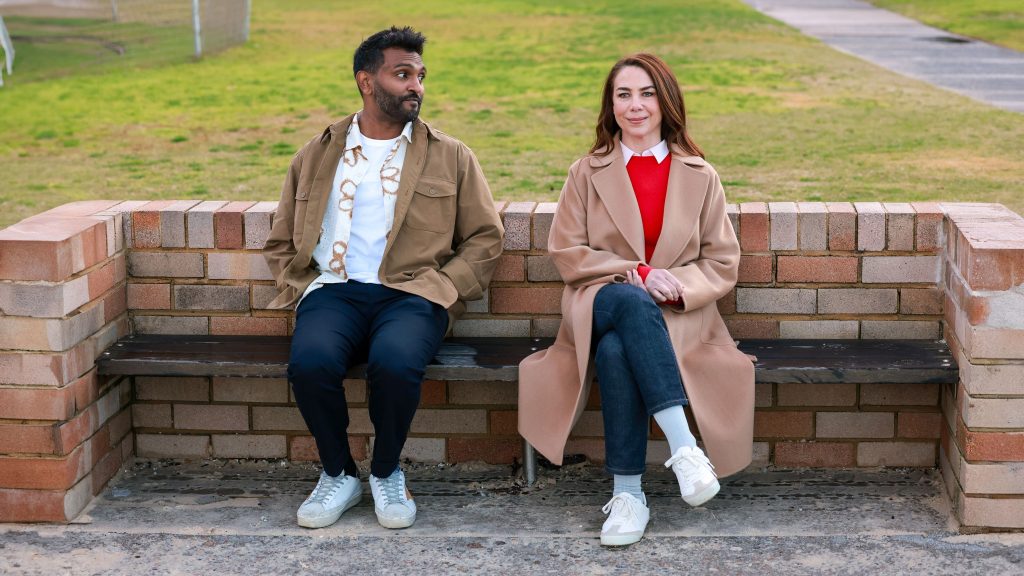
The good news is, going by the first episode, the “scripted comedy sketches” are kept to a bare minimum. Over a 45 minute show they’re maybe 7-8 minutes, tops. They’re also astoundingly unfunny. As in, the only identifiable “joke” is a repeated reference to that chocolate you eat when you have worms.
(is that a real thing?)
Sure, they’re not really trying to be funny. The point is to illustrate the parenting dilemmas that the rest of the episode is going to tackle in the trademark ABC factual fashion. So there’s a scene about how it sucks when you discover all your high school friends have set up a discord channel titled YOU SUCK AND WE HATE YOU, cut to some real-life expert explaining how they’re not your real friends anyway.
For what it is, it’s fine. It mostly left us wondering why the ABC doesn’t do any consumer affairs shows these days, because people used to love them and that’s an area of daily life where some expert help would actually be useful, but you know, blame Ita Buttrose for that.
What it isn’t, is any kind of comedy at all. So once again, time to wheel out this old classic:
If everyone knows that audiences love comedy – and everyone does know, that’s why 80% of everything put to air is sold as containing comedy – then why the fuck won’t the ABC (and everyone else, but mostly the ABC) actually make any comedy?
The Role of a Lifetime is a factual series based around parenting advice and tips. It’s not a comedy, it’s not a sitcom, it doesn’t feature comedy sketches. Stop insulting us, stop dicking around, and start commissioning some real comedy.
Oh look, The Weekly is back in a few weeks. Fuck this shit.
Growing Pangs
Press release time!
What’s That? A Tonight Show!
Sam Pang Tonight. Premieres Monday, 17 March At 8:40pm On 10 And 10 Play.
Sam Pang Tonight is a brand-new show defying convention by bringing viewers something refreshingly familiar: a tonight show. Hosted by, you guessed it, Sam Pang.
Sam’s no stranger to Aussie audiences, he’s buzzed in from the front-right position for more than a decade on the fast and funny Have You Been Paying Attention?, he’s hosted the 2023 and 2024 Logie Awards and he’s a co-host on Seven’s The Front Bar. And now he’s got his very own tonight show, filmed in front of a live studio audience.
Expect a monologue that both celebrates and roasts the week’s news, a mix of local and international guests, along with plenty of Sam’s friends from the comedy world joining in the fun across the eight-episode season.
Sam Pang said: “I’m thrilled to bring a tonight show to Australian screens in 2025. Especially since Channel 10 passed on my pitch to reboot The Golden Girls.”
That’s not giving us much to go on, but as it sounds very much like a traditional tonight show it shouldn’t be hard to fill in the gaps. Pretty brave move to let us know it’s an eight episode season too. Rove’s last attempt at a tonight show on Ten didn’t make it to week three, Micallef Tonight didn’t do a whole lot better, and while Mick Molloy’s The Nation managed eight weeks it was basically forgotten after week two.
Still, at a time when comedy on the commercial networks is once again in decline – RIP that segment Mark Humphries briefly did on Seven news, though possibly once the election’s called he’ll turn up somewhere doing the usual – having a network gamble on an old-fashioned tonight show is a big swing.
And if it does tank, Pang’s got so many other gigs on the go we’ll never hear the end of it.
A Bad Look
Optics is the ABC’s big sitcom for 2025. If you’re thinking “hang on, that can’t be right”, we agree. Now point out what else they have to offer this year. The return of Mother and Son? A bunch of imports? Nothing else? Sure, the usual unfunny dramedies are no doubt soon to surface, but as far as actual sitcoms go? This is it.
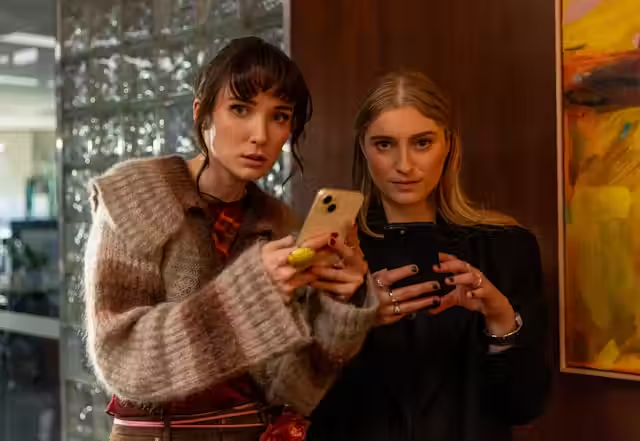
This is also not very good.
There’s a lot going on here, so to summarise: this is the story of two twenty-something women, Greta Goldman (Vic Zerbst) and Nicole Kidman (Jenna Owen), who find themselves unexpectedly put in charge of a PR firm. Oh hey, Gruen but it’s a sitcom, finally.
It is also the story of middle-aged media executive Ian Randell (Charles Firth) who suddenly discovers his slacking off days are over and now has to work for a living when he’s passed over for a long-expected promotion. Take that, Gen X!
The reason why we list them separately – obviously the women got the gig Randell wanted, thus tying the two together – is that usually one would be the lead and the other the antagonist, thus creating comedy. But here, they’re…all leads? They have different skills and world views (guess who’s good at social media and who’s good at buttering up newspaper journos!). But it repeatedly turns out that those skills are complimentary and by working together oh who gives a shit.
This is also one of those comedies where much of the plot comes from behind the scenes looks at how things really work in a particular industry. Remember The Thick of It? Frontline? A seemingly endless parade of other sitcoms that all for some strange reason were focused on politics and the media? You know, the kind of shows that always seem to get glowing reviews in the media? Because if there’s one thing the media is interested in, it’s coming home from a hard day working in the media and immediately watching a show set in the media.
Here’s an idea. If you made a six part sitcom set at a garage and every episode was an in-depth look at one of the ways mechanics screw over their customers, you would have the highest rating sitcom in 21st century Australian history. But why make something interesting to regular people when you can lift the lid on the way that the media heroically manipulates the public because nobody’s ever revealed that before. Stop the press oh wait economic forces already did that.
Anyway.
There’s also a mystery as to why the women were put in charge. Only it’s not a mystery as the show spells out that they were given the top job to take the fall when all the dirt hidden by the previous, now dead, CEO comes to light. And the nature of the dirt isn’t exactly a mystery either. He was a sleazy old man in a business built on cover-ups so *gestures at headlines* take your pick.
Still, there’s always the jokes, right? And again, this is (at least) two different shows smushed together. In one Charles Firth is playing a fairly trad comedy character who is loud, deluded, entitled and bungling – but who also is halfway decent at his job, so there’s that. It’s hardly cutting edge stuff, but he’s an old pro and he gets laughs.
Zerbst and Owen are an established double act specialising in millennial anxiety and entitlement. Which mostly means they talk very quickly and are often impressed with themselves. Unlike Randell, who looks and acts like a dipshit but is competent, the joke here seems to be that they seem competent, but… maybe aren’t?
For example, the first episode has them seemingly solving the PR crisis only for the moronic AFL player (who they told to do nothing) to go partying again. It’s presented as being his fault, but it kind of seems like something they should have predicted considering, you know, he was a moron.
Also, while there’s two of them, their dynamic is “supportive besties”, which is notoriously hilarious. Just kidding, having two out of three main characters on a comedy be bland nothings is death. This is a sitcom, everything here should either be funny or be making something else funny.
If Firth was playing some kind of high powered evil antagonist then sure, there being two of them would make sense. They need mutual support! And someone to bounce ideas off, and handle separate parts of their schemes, and so on.
But – in a move that we have a feeling was suggested in an ABC memo that said something like “Everyone who watches the ABC is over 50, we can’t make a sitcom where two twenty something women are the heroes and the bad guy is basically OUR AUDIENCE” – he is not really the bad guy and both sides usually end up needing each other to get the job done.
If only that job involved being funny.
Australian Tumbleweeds Awards 2024
Welcome to the Australian Tumbleweeds Awards. People from around Australia have been voting for their best and worst of Australian comedies of last year. But before we get to the results, let’s remind ourselves of what went wrong (and right) with Australian comedy in 2024…
We can usually tell what kind of a year Australian comedy is having by the amount of personal abuse we get. Things going well, the future looks bright, funny people are getting big laughs? All quiet on the personal front. Shows getting axed, stagnant vibes, everyone half decent is heading overseas? Oh look, another nameless post letting us know we’re not qualified to make jokes about Wil Anderson because we’re losers (shit, they’re onto us – ed). Guess what was clogging up our inbox in 2024?
Let’s be honest: it was hard not to be frustrated by the state of comedy over the last year. What good shows we had remained the same good shows we had in previous years, while the few new comedies we had either featured people now entering their fourth decade on Australian television or formats that had been lifted from overseas networks (and before that, comedy festival shows). These weren’t automatically bad things, of course – but they weren’t exciting things either, and without excitement comedy is always going to struggle.
The decent shows felt a little tired; the rubbish shows just kept on coming. The ABC, under the leadership of new scripted boss Chris Oliver-Taylor, axed pretty much every comedy program in development (including a second series of Aunty Donna’s Coffee Cafe) for 2024; then they axed Oliver-Taylor himself for good measure. Meanwhile, garbage well past its use-by date like The Weekly and just about everything hosted by Wil Anderson kept on being smeared across our screens. Coming in with a new broom doesn’t work if you don’t scrape the shit off it first.
Unlike scripted drama, where various streaming services picked up the slack after the commercial networks gave up on it, free-to-air remains the only game in town for local comedy. And as games go, it’s increasingly feeling like the Hey Hey it’s Saturday board game only with half the pieces missing. The funny half too – all the female co-hosts and Trevor Marmalade are gone, but somehow there’s a half dozen extra Plucka Ducks mixed in.
For example, the Working Dog team are all nearing retirement age; what if they decide they’ve had enough of putting out three weekly shows every year? There goes the entirety of the commercial networks comedy output unless you count that Andy Lee panel show and let’s not. Is it healthy for an entire genre of entertainment to be dependent on a production team that are all pushing 60 and made Pacific Heat and Any Questions For Ben? Don’t bother rolling the dice, we’re about to find out anyway.
And they’re the good guys. As previously mentioned, the ABC have already doubled down on a policy of “fuck comedy”, even though their only real ratings success (both locally and internationally) this decade has been Fisk. Competent management would be trawling the comedy clubs with cash in both hands looking for experienced middle-aged comedians with a sitcom idea up their sleeve: instead, we’re getting a second season of the Mother & Son reboot.
So no wonder in 2024 we got a bunch of emails acting like a collection of out-of-date personal information dug up by an News Corp journalist in 2012 was going to get us to back down on our controversial stance that… *checks notes* Question Everything was pissweak. This was was not a year that got anyone excited about the the state of comedy, and the only good news was that things could only get worse.
Worst Sketch or Short Form Comedy
Runner-up
Taskmaster Australia
21% of the total votes
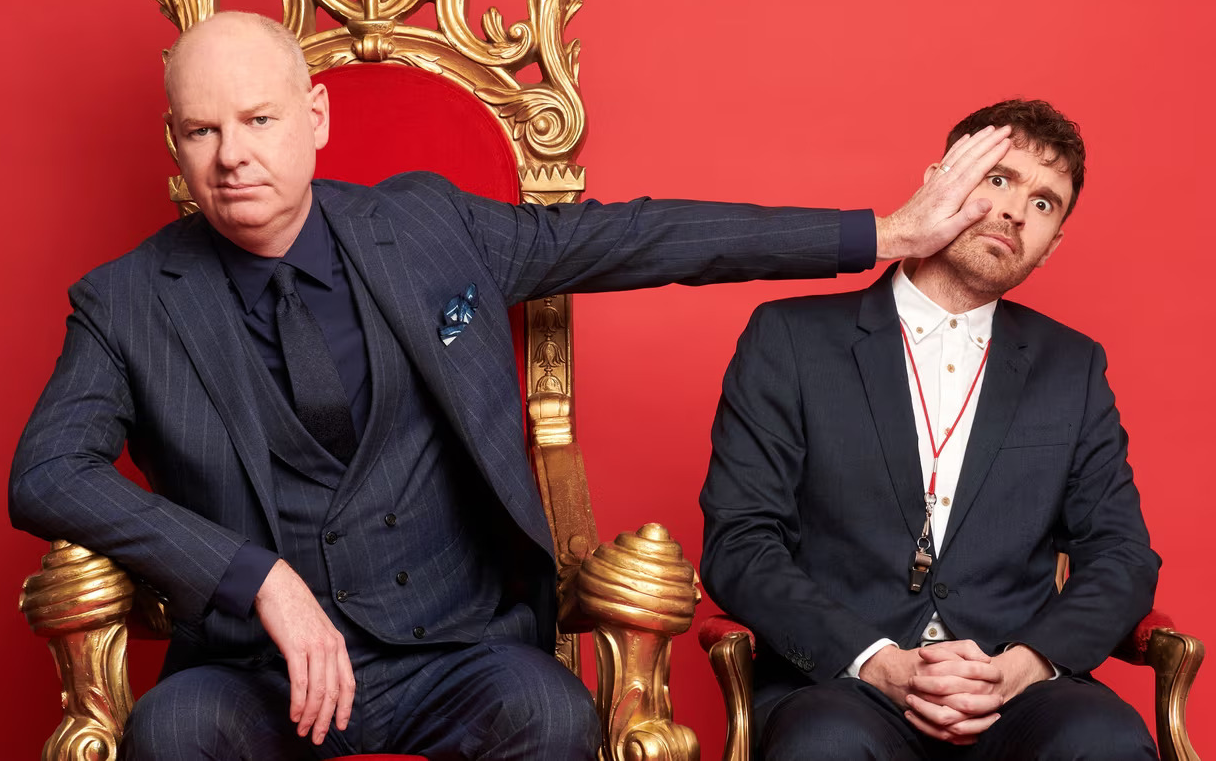
Taskmaster is not an aggressively bad show, which pretty much passes for high praise in 2024. But it is a show where a little goes a long way: like most series of its kind, you could edit it down to a tight 90 minute special and still keep all the good stuff. Instead, we had two seasons of it: who knew Australian television could get so much mileage out of that workplace prank where you send the new guy down to the hardware store for a bunch of left-handed screws.
Runner-up
The Weekly/The Yearly with Charlie Pickering
46% of the total votes
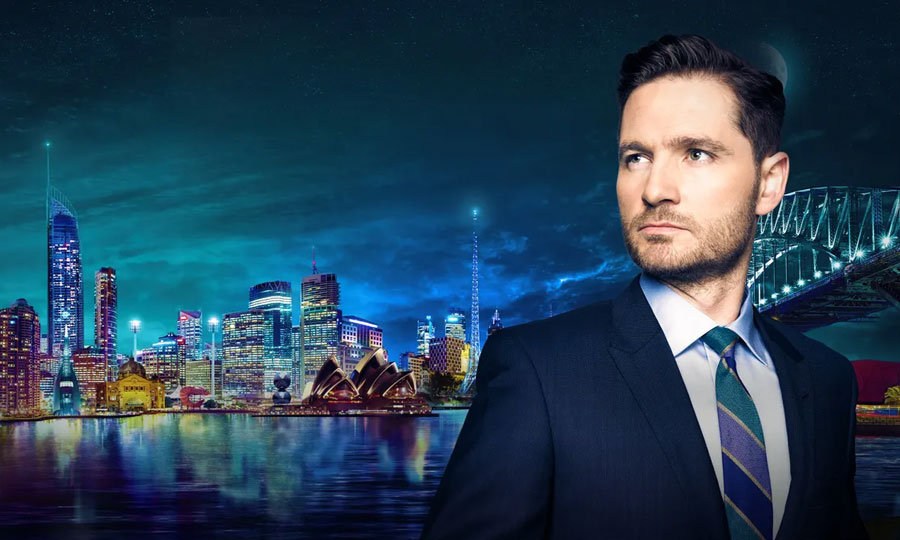
How is this still on the air? Not in the sense of “why is this still being made” because we all know the ABC sees Charlie Pickering as a vital asset filed under “emergency Wil Anderson”. But in 2024 The Weekly was looking so half-arsed, so clearly thrown together by one of Pickering’s mates scraping social media for jokes and thinking they were getting away with it because the jokes were all from 2023, that if you squinted you could literally see through the threadbare show to the repeats of Vera showing over on ABC Family.
Winner
The Inspired Unemployed (Impractical) Jokers
62% of the total votes
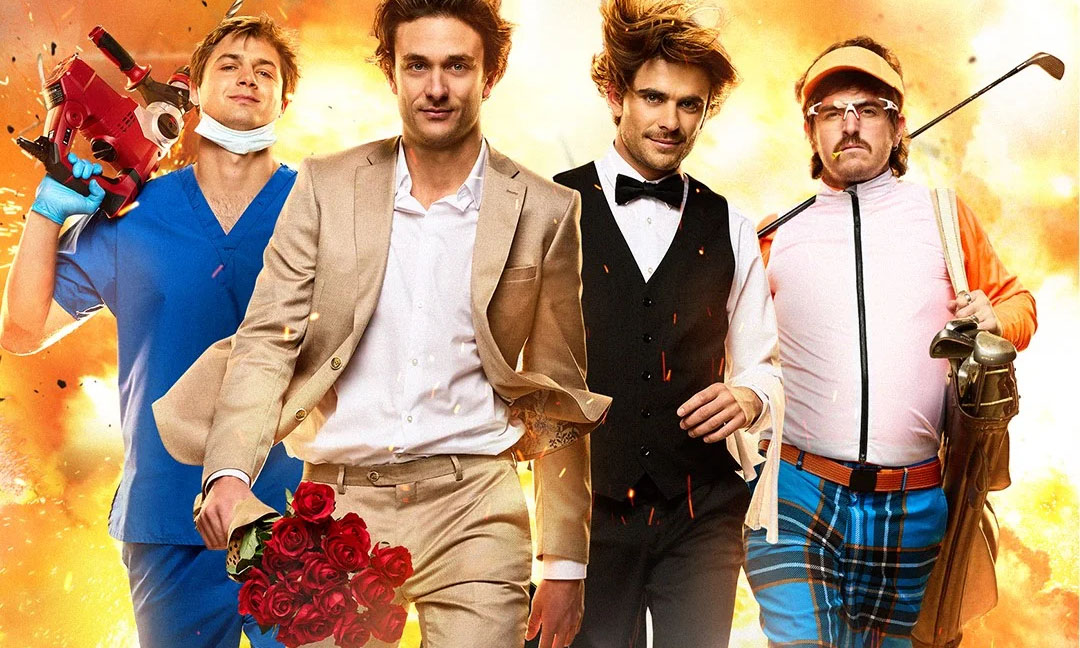
Pranks! They grow up so fast and then refuse to leave home. The sole innovation in series one – that the team were tormenting each other, with the general public bystanders rather than victims – was already struggling after a few episodes; by this second season the fact the cast were interchangeable nobodies meant even that didn’t work. Possibly if the pranks themselves had been outrageously original and thought-provokingly insightful a second bite at the cherry would have been worth it. They weren’t, and it wasn’t.
What voters said about The Inspired Unemployed (Impractical) Jokers
Despite the occasional snigger, Inspired Unemployed… basically comes across as four interchangeable smug guys that think they’re so hilarious. They may be surprised to know it does get old at some point.
Honestly pretty shitful. The original worked because it was 1. innovative, 2. of its time, and 3. by actual comedians rather than internet idiots. The Inspired Unemployed… changed the vibe from cringing with the cast to cringing at them, and yes I hate-watched the whole series. At least it was better than the UK version.
It’s not comedy when you humiliate others for a laugh with your mates.
Worst Sitcom or Narrative Comedy
Runner-up
Colin from Accounts
15% of the total votes
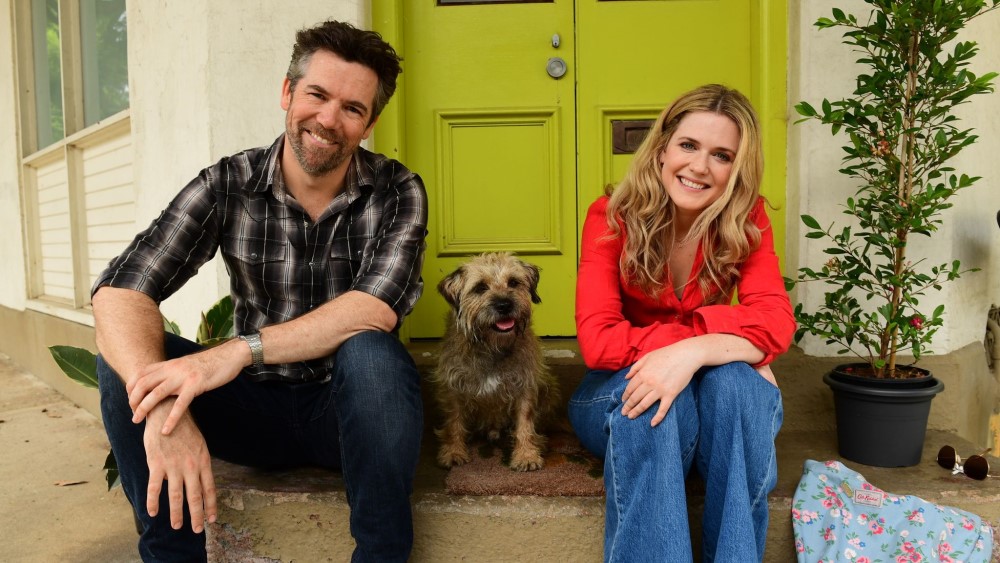
There have been plenty of bland but inexplicably popular TV shows over the years, but whatever appeal Colin from Accounts had in its first season seems to be disappearing after its second. Maybe it was because even the kind of viewer who puts a show on so it’s not silent in the background when they’re scrolling social media thought “Hang on, isn’t this like every other comedy-drama I’ve had on in the background over the past couple of years?”
Runner-up
Austin
22% of the total votes
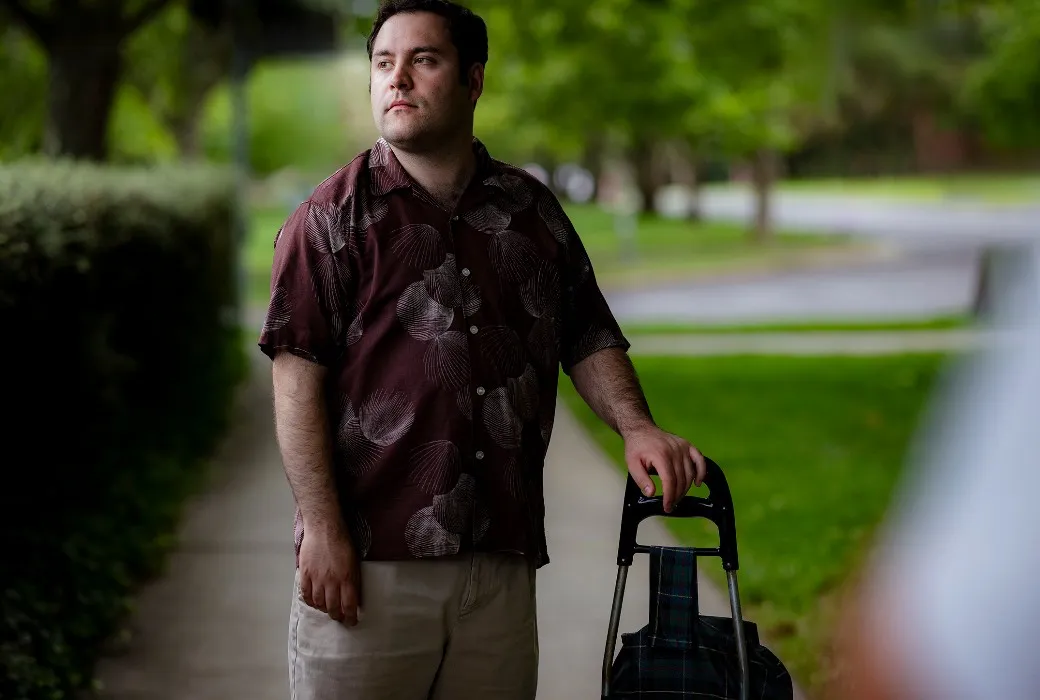
There were a few more laughs to be enjoyed – and reasons to pay attention – in this series about a young guy with autism who finally gets to meet his real father. But not many. Despite some amusing minor characters and the occasional on-point joke, this was a show that at its heart wanted to be more than funny. It tried to make you go “Aaaawwww”. And that’s never a good way to do comedy.
Winner
The Office (Australia)
56% of the total votes
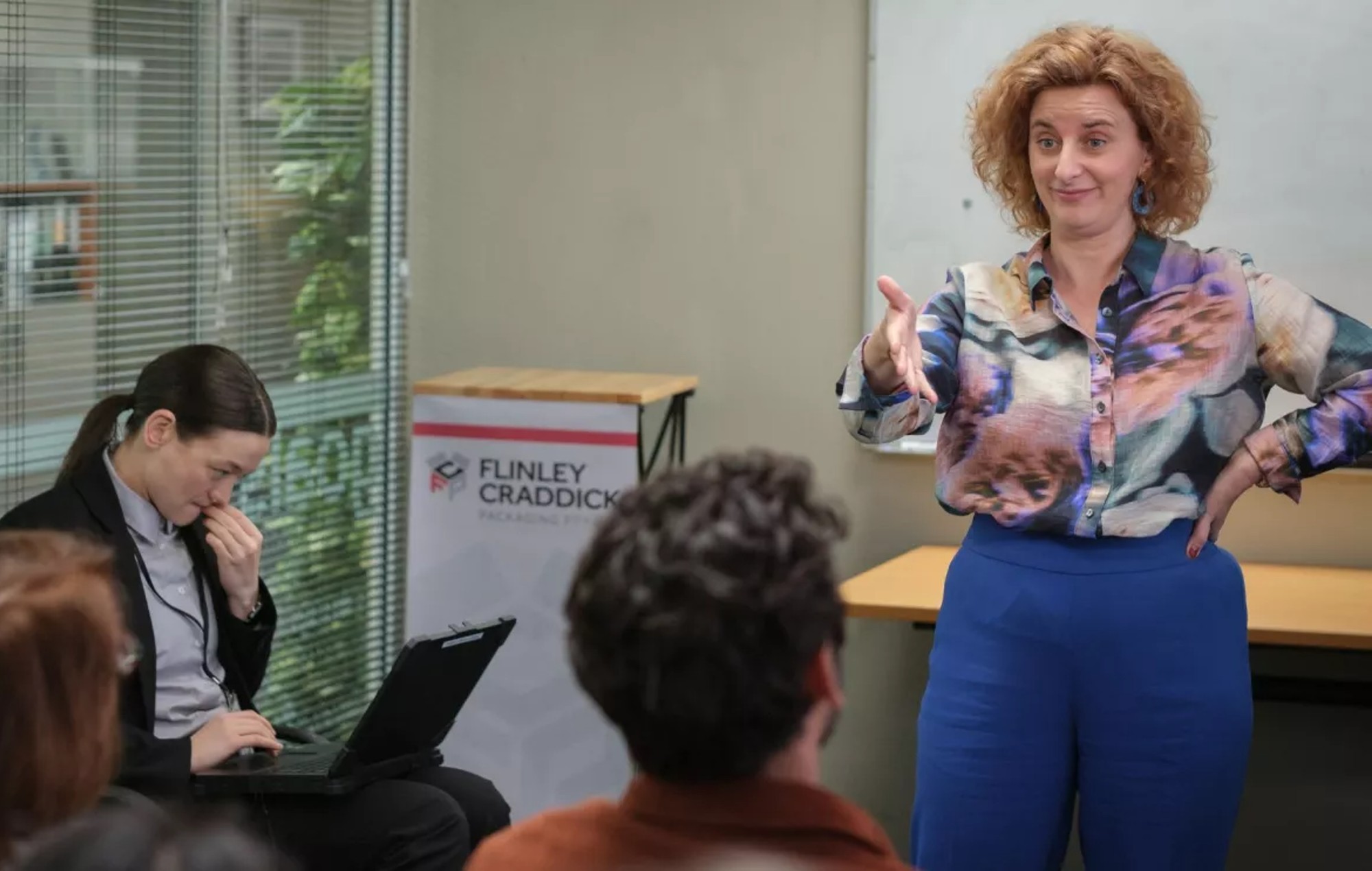
Given what we’ve just said, it might seem contradictory that one of the few sitcoms or narrative comedies released in 2024 that genuinely wanted to be funny has won this award. But The Office (Australia) really was terrible. No one needed to revive The Office in 2024, and an Australian take on the concept didn’t bring much to the party. As for the novelty of a female lead, isn’t it great to see that women can screw up a workplace just like men? It’s what every feminist has been fighting for.
What voters said about The Office (Australia)
Make an Australian version of The Office, written by Kiwis and copying the American version. Reminds me of the good old days, where “bottom of the harbour” schemes were all the rage.
A line was crossed this year. A declaration of “We do not have original ideas, we do not welcome original ideas. We will not copy fresh ideas, we do not want to succeed for we do not give a fuck about entertainment.” I’m sure many others have put it better but I’m still insulted by this.
Stop flogging an already dead horse.
Worst Panel, Game or Stand-up Show
Runner-up
Question Everything
28% of the total votes
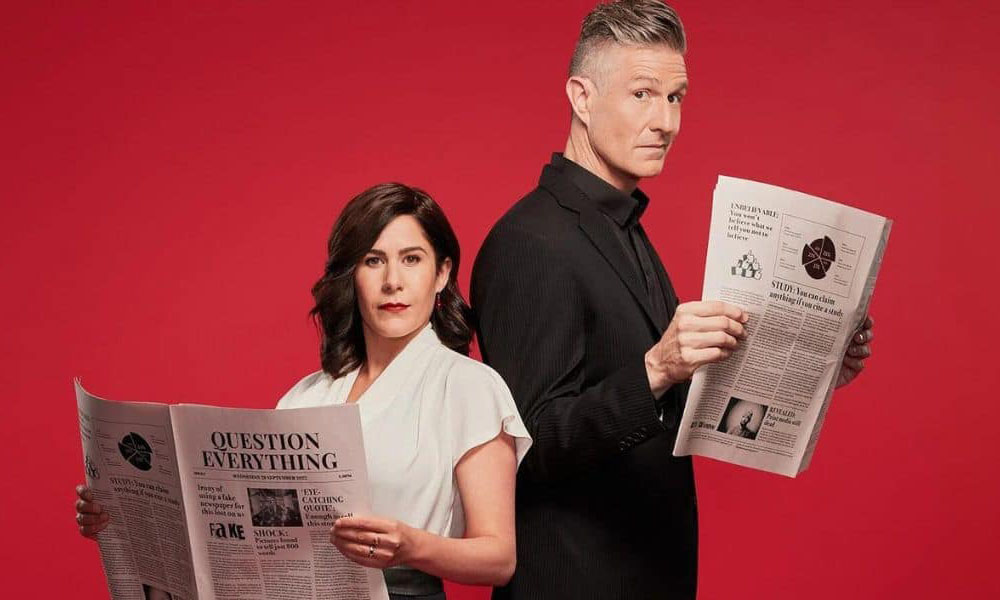
Question Everything spent fair a bit of time in 2024 justifying itself as a training ground for new comedy talent. The implication being that if you don’t enjoy Question Everything it’s because the new talent sucks. Not that we ever saw that new talent on screen, of course. We just see people we’ve been seeing in various ABC shows for years. Not having the new talent on screen, and kind of blaming of them how terrible this show is one way to justify the fact that the only people who get to front shows on the ABC are people who’ve already fronted shows on the ABC, we guess. And a decent satirist could get some comedy out of all this PR spin and corporate machinations. Sadly, they won’t get the chance. Because the ABC has already spent all its money on more episodes of Question Everything.
Runner-up
The Inspired Unemployed (Impractical) Jokers
35% of the total votes

Given that most of the rest of Australian comedy in 2024 felt like some kind of prank on the audience, this was at least honest that it was a pranks show. It was a shit pranks show, and pranks make for bad comedy. But if you’re voluntarily watching a pranks show on TV, you get what you get.
Winner
The Australian Roast of John Cleese
46% of the total votes
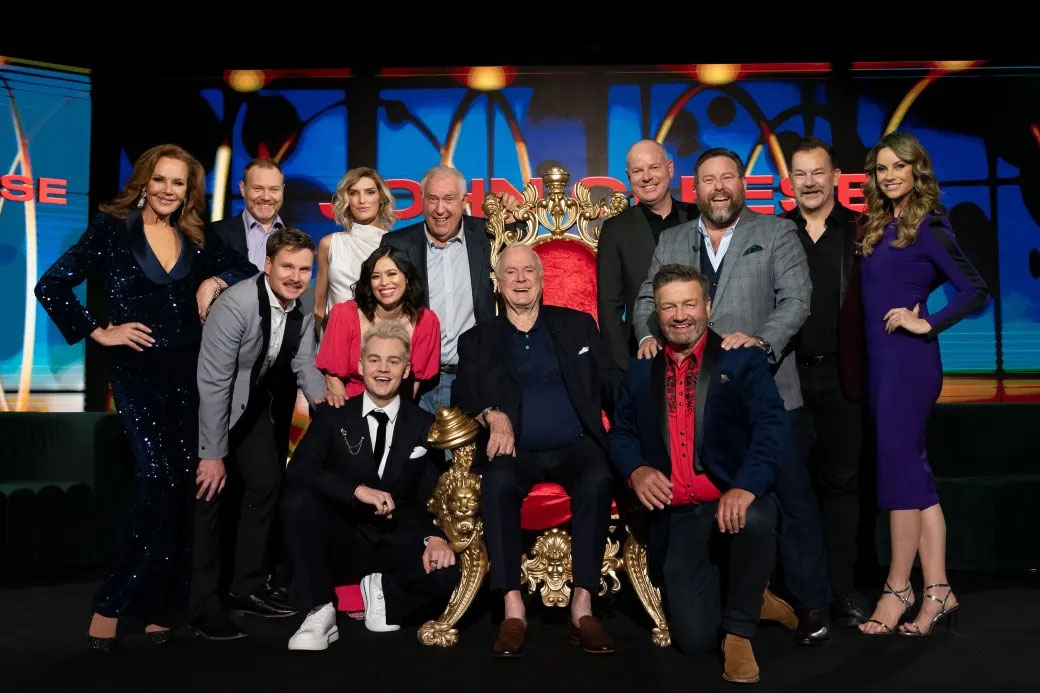
No one tuning in to see John Cleese doing new comedy in 2024 is expecting a comedian in their prime. But it was reasonable to expect that the people roasting him – many of whom were young enough to be his grandchildren – might have something funny to say. And they did, occasionally. But they mainly said the exact same funny things as the previous person who’d got up to roast Cleese: he’s had a lot of wives; he’s been in a lot of bad films…you get the idea. A lot of money was spent on getting Cleese to come to Australia to appear in this. Was there really no money left to pay someone to give every speaker a different joke about one of his ex-wives or bad movies? We don’t know about his ex-wives, but we’ve seen some of his bad movies and there’s some golden comedy opportunities in them hills.
What voters said about The Australian Roast of John Cleese
John Cleese is a grumpy old man who no longer deserves a platform to be a dickhead.
If you’re going to do roasts, swear! For fucks sake! Even John Cleese overplayed covering his head with his blazer towards the end, looking bored and embarrassed, not knowing 99% of the roasters. Then again, Joel Creasey and John Cleese may be Creasey And Cleesey Besties.
The Australian Roast of John Cleese, almost had comedians who’ve actually seen him before, and some of them even bothered to read their script beforehand! What a pleasure it was to pay the arrogant grumpy conservative bastard and his daughter to come out here for something that was forgotten as soon as it was released.
Worst Topical or Satirical Show
Runner-up
Question Everything
28% of the total votes

You know when people talk about failsons? People who don’t have any real ability or talent but keep on being pushed upwards because of connections or who they’re related to until they turn up in some highly coveted position that in a fair society would have gone to someone who knew what they were doing and then they just sit there doing bugger all but soaking up resources they’ve neither earned nor deserved? Imagine how shit a television show like that would be. Imagine how frustrating it’d be to see it turn up on prime time week in week out while the hosts kept changing their story, going from how the point was to lift the lid on how the media worked to no, wait, it was really about training a next generation of comedians to wait, no, remember newspapers, lets hold newspapers like anyone under 50 knows what they are and stare blankly into the camera, that should be good enough for another eight episodes.
Runner-up
Gruen
35% of the total votes
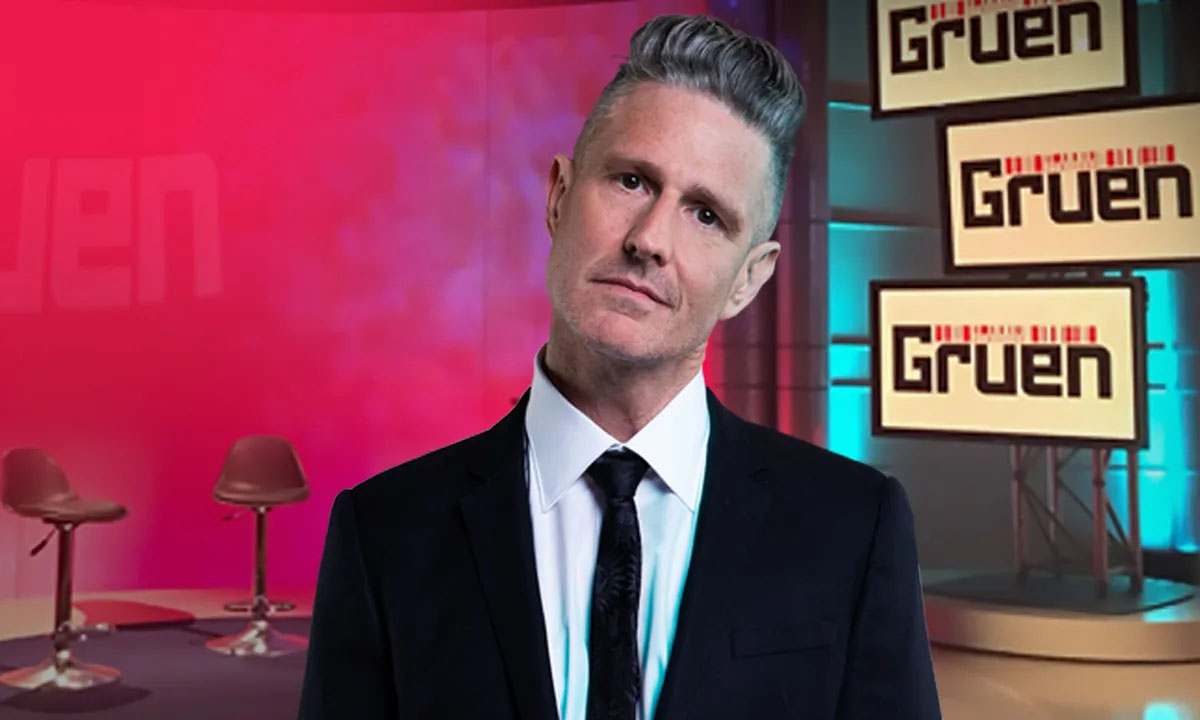
At least there was a point to Gruen once. It’s long gone now of course, but once upon a time Gruen – which was basically “let’s combine one of those World’s Funniest Commercials specials with a panel show” – was kind of relevant to some people’s lives. Those people weren’t actually watching the ABC of course, because ABC viewers don’t watch commercial television so an ABC series about advertising is like a Channel Seven show about books, but you could hear the premise of Gruen and think “yeah, the ABC probably should make a show like that”. And then next thing you know it’s 2024 and it’s like they’re still broadcasting Pot Black.
Winner
The Weekly/The Yearly with Charlie Pickering
47% of the total votes

Here’s a serious question: are all the shows in this category really just the same show under different titles? We watched all of them throughout 2024 and honestly we’re not sure. The ABC seems to have found its default tone for topical comedy – whether mandated from upstairs or just what you get when you hire the same kind of person to do everything – and unless your philosophy of humour is “when the guy in the suit stops talking, laugh”, it all sucks. Creative people are rightly worried that AI is coming for their jobs; if these shows are any guide, AI’s been running ABC comedy for years.
What voters said about The Weekly/The Yearly with Charlie Pickering
To paraphrase Paul Keating: The satire of The Weekly/The Yearly with Charlie Pickering is like being flogged with warm lettuce.
Charlie Pickering is the government literally trying to subsidise the dead horse flogging industry.
A decade now of pretending to be John Oliver. Maybe in another 10 years it’ll start being funny.
Worst Comedy Film
Runner-up
Audrey
13% of the total votes
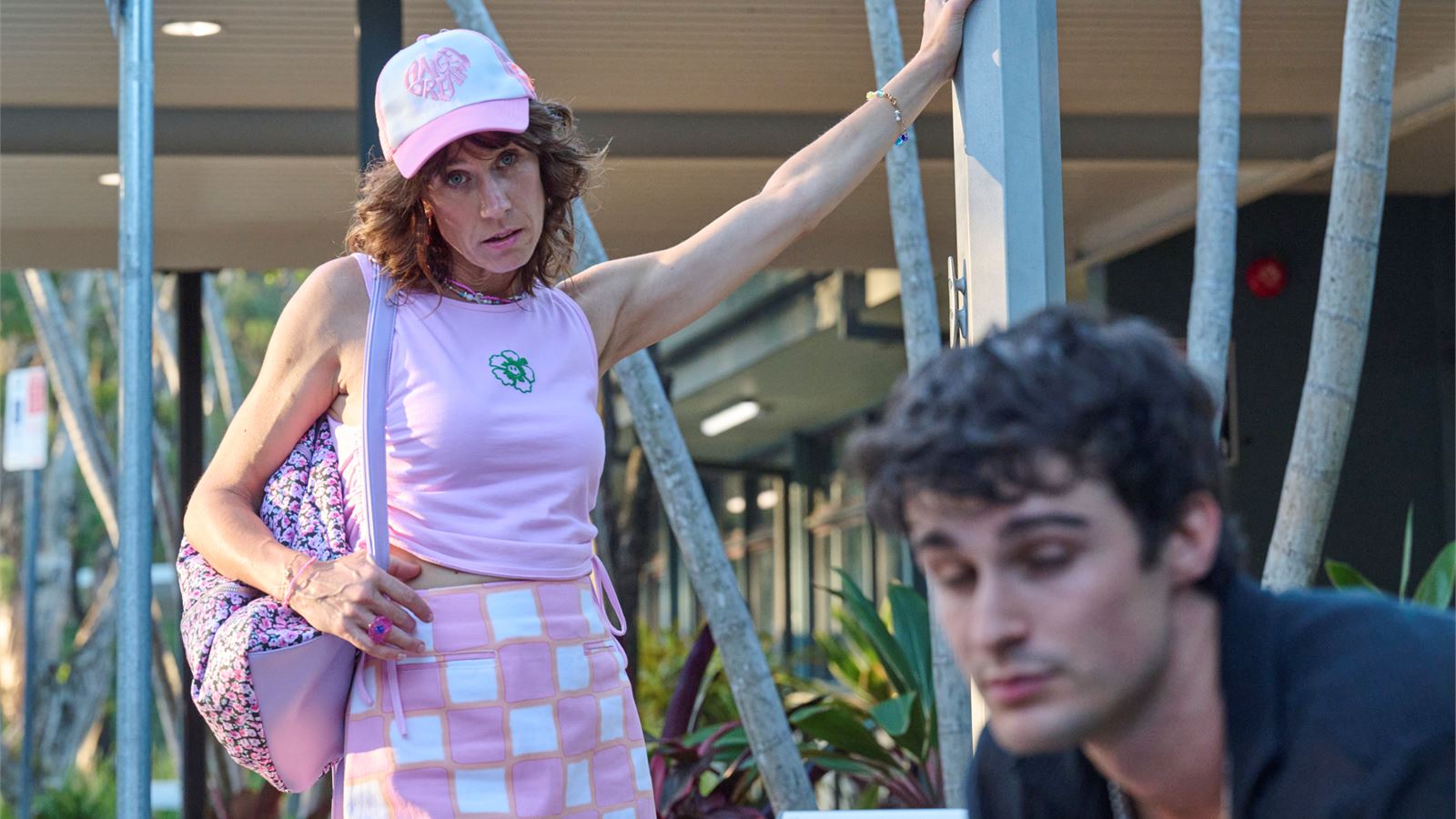
While lots of Australian TV shows get away with being called comedies if they have occasional comedic elements, Australian films get away with being called comedies if they merely have a quirky premise and a character with a niche sexual kink. In this film, the titular character ends up in a coma after an accident and suddenly her Mum, Dad and sister start having great luck in everything they do. There was presumably the intention that this film would make some kind of deeper point with this premise, but how it played out was that the Dad gets involved in Christian porn, the Mum impersonates Audrey in the hope of rekindling her acting career, and the sister tries to steal Audrey’s boyfriend. So, the point being made was that people are selfish dickheads?
Runner-up
The Emu War
29% of the total votes
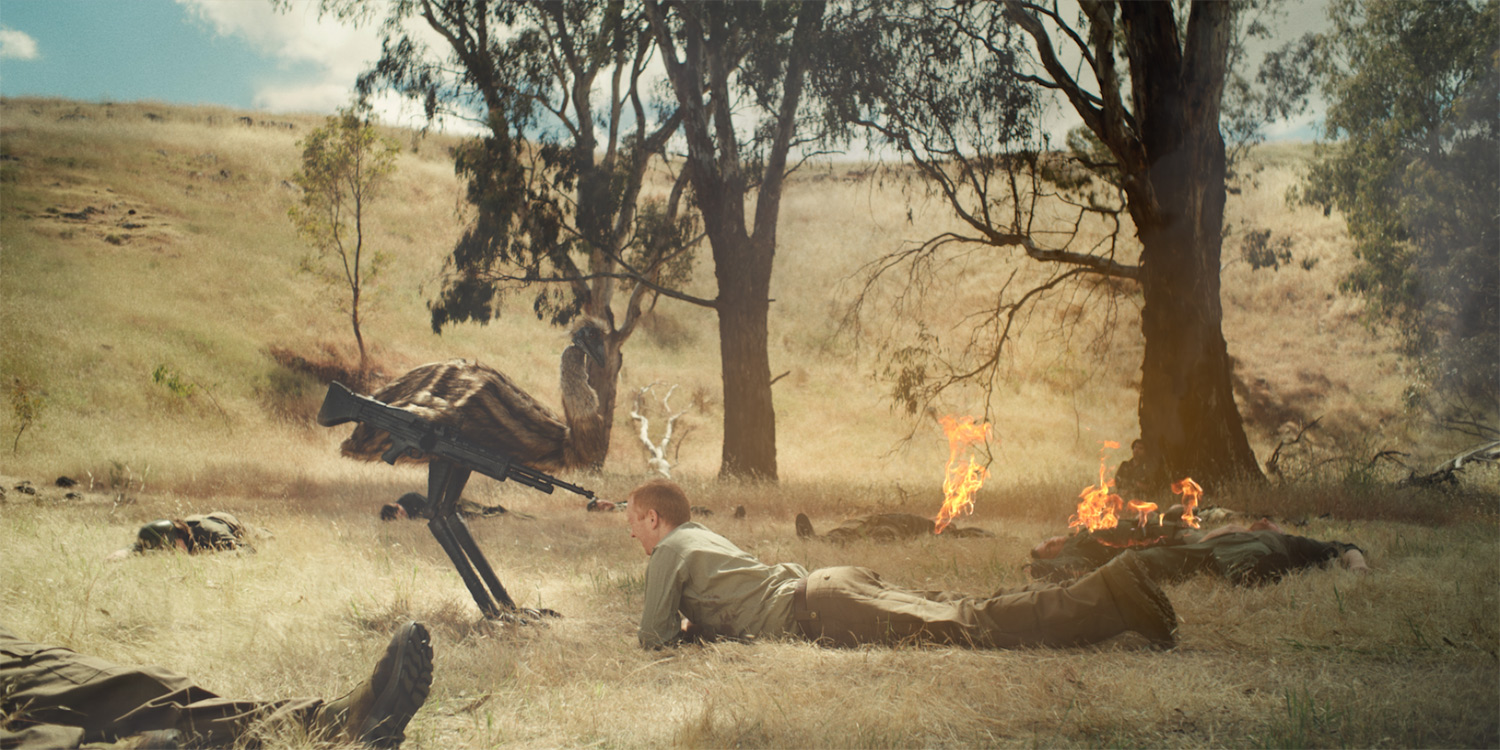
The thing about The Emu War is that while yes, it’s not very good, it’s trying to do so many different things that even if it’s not good at one of them… or the next one… or the one after that… then at least when the end credits roll you can say… hang on, none of that was any good. Oh all right, there was the occasional decent joke sprinkled in. The part where the crack special forces team were given suicide pills hidden in their teeth and they all accidentally bit down on them was dumb enough to get a laugh. Which is more than any of the other films in this category managed.
Winner
Nugget is Dead? A Christmas Story
36% of the total votes
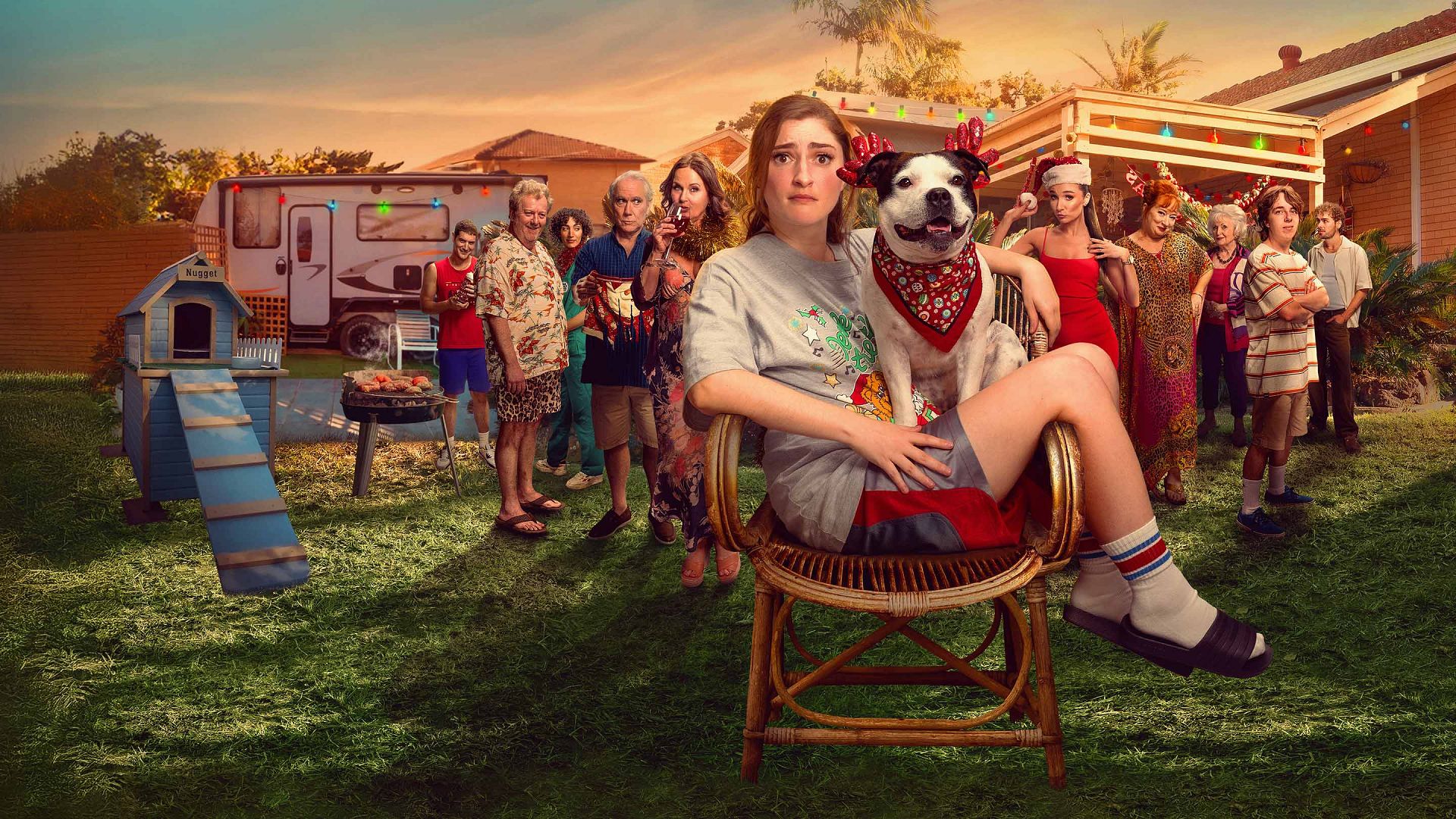
No one who’s watched more than one of these annual Christmas films from Stan expects to see perfection, but this wasn’t even the sort of half-arsed movie you could enjoy after you’d had a few. This was unfocused and weird, lurching from simplistic visual comedy to dissections of peoples’ mental health to a will-they-won’t-they romance plot. And then a dog died. It was also amongst the funniest films made in Australia this year. Which either says something terrifying about the state of our film industry or makes us a bunch of dog death-wishing sickos. It’s probably a bit of both, to be honest.
What voters said about Nugget is Dead? A Christmas Story
Of course an Australian spin on a family Christmas comedy is to a) make it not funny and b) make it very depressing and KILL THE DOG.
Look, I haven’t seen any of them but there is no way in HELL that I want to watch a movie about a dog dying, let alone on Christmas Day.
Based on premise alone as none seen. A dog is questionably dead wins.
Best New Comedy
Runner-up
Shaun Micallef’s Origin Odyssey
13% of the total votes
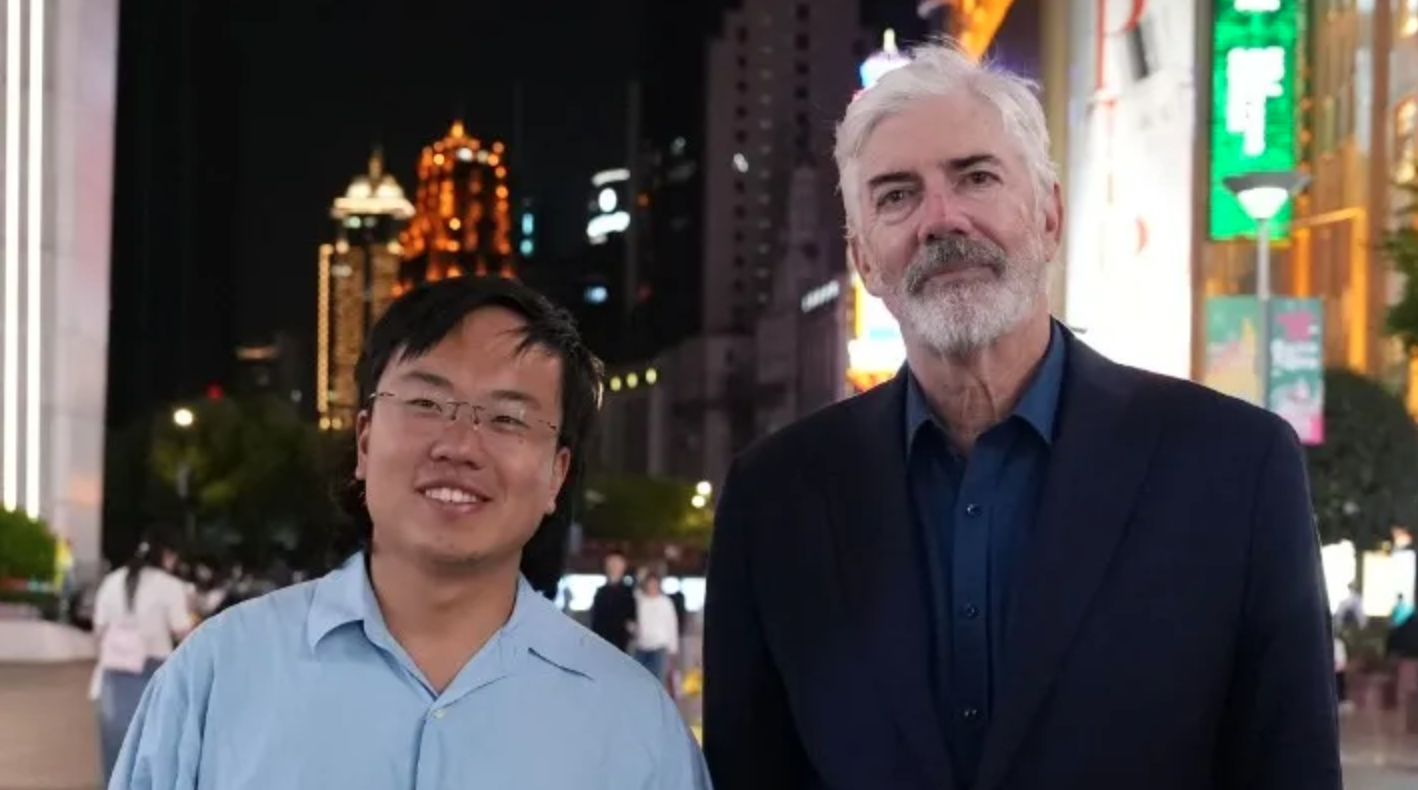
Shaun Micallef, quality interviewer: who saw that coming? This might not have been a constant stream of hilarity, but as a mix of travel show and personal reflection Micallef managed to get the most out of both well-worn formats. We saw the sights and we saw a side of a bunch of local comedians that we hadn’t seen before: Aaron Chen getting emotional about his father’s struggles and treating Micallef like, well, a surrogate uncle at the very least made for surprisingly warm and effecting viewing. And that was just the first episode, though it’s not like Wippa cracked open like a over-emotional walnut or anything.
Runner-up
Shaun Micallef’s Eve of Destruction
20% of the total votes
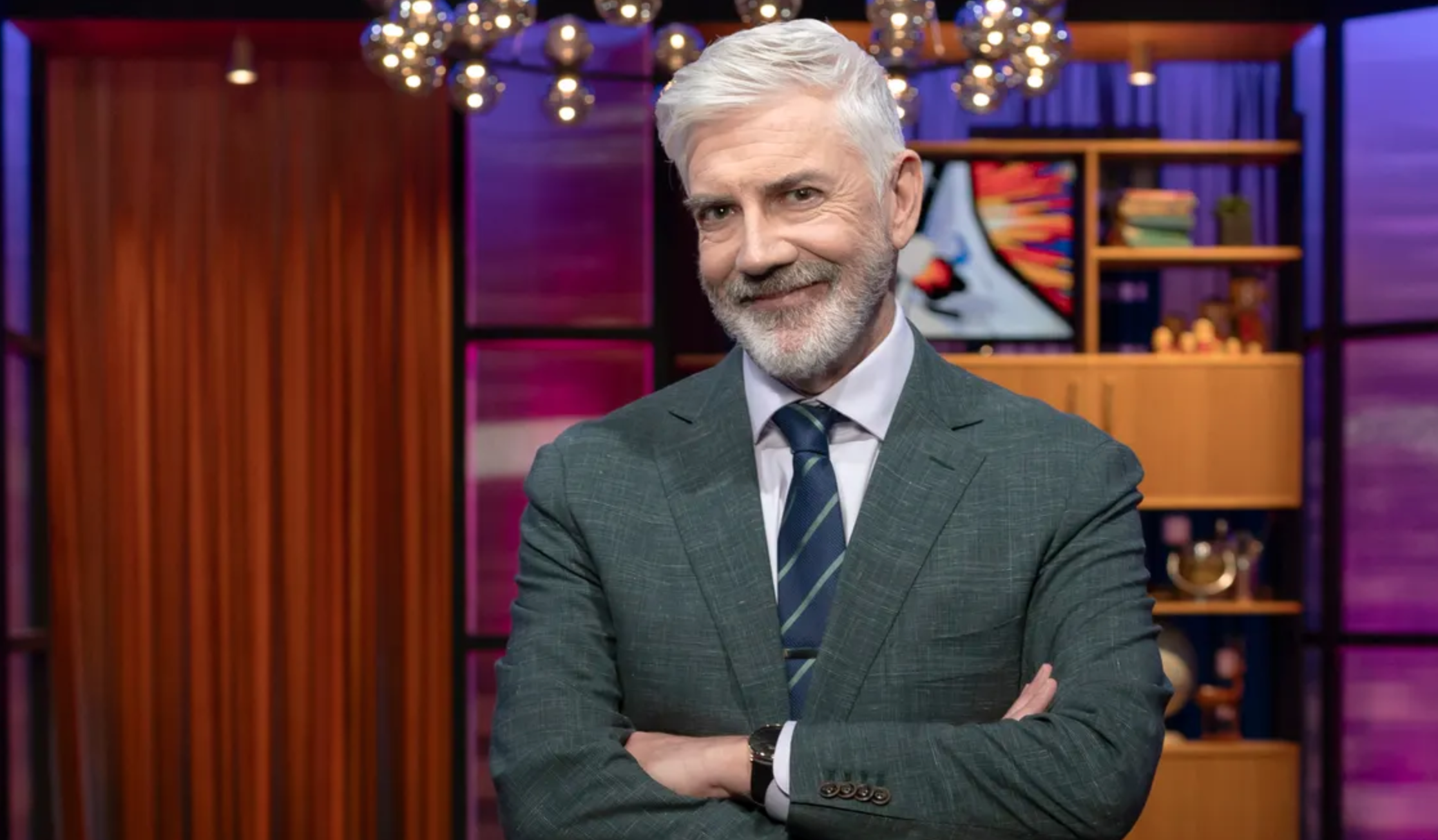
Shaun Micallef, quality interviewer: who saw that… hang on a second. Despite seemingly being made for pocket change using items fished out of a dumpster and featuring guests who more often than not seemed slightly puzzled to be there, as interview shows go this was a joy to behold. Turns out having a host who’s actually interested in his guests and having guests who aren’t there to plug their latest project leaves a lot of space for a conversation to go in weird and funny directions. Maybe it wasn’t prime Micallef, but it was still a lot better than no Micallef.
Winner
Guy Montgomery’s Guy-Mont Spelling Bee
65% of the total votes
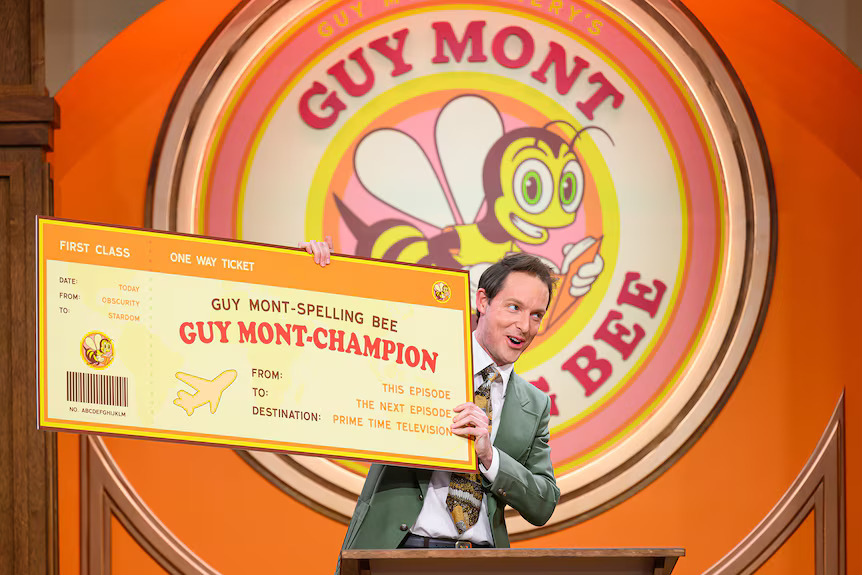
It’s not fair to say this won best new comedy of 2024 in large part because it was the only new comedy of 2024. On the other hand, it’s not like the runners-up in this category were going for big laughs. This was about as funny as a spelling bee can get, which might be damning with faint praise but being a comedy built around an extremely unfunny subject was kind of the point. So while there were a few rough edges (which again, were part of what made it work) and a couple episodes that could have been a little shorter, this is still a worthy winner. Guy Montgomery is a real talent as both a host and a comedy character, every appearance from Aaron Chen was gold, and even when the contestants weren’t great the show never let them stink up the joint. It’s honestly a surprise that something this offbeat got renewed by the ABC: guess their love of game shows really does know no bounds.
What voters said about Guy Montgomery’s Guy-Mont Spelling Bee…
Guy Montgomery has been a favourite of mine for years and the original spelling bee format got me through lockdown after lockdown. Aaron Chen was my pick for the Taskmaster’s Assistant, and his role here proves how good he is at being a quirky foil to a slightly grumpy leader. The riddles are predictable and yet they get me every time. This show is also how I discovered Dan Rath, who has been my favourite comedy find of the year.
Guy Mont Spelling Bee is subversive, unpredictable and full of surprises, unlike pretty much everything else on the ABC. Well done to Aunty for renewing it, despite the format’s lack of appeal for the rapidly ageing ABC audience.
Best new TV show is an NZ format with a full season under its belt at home. Love Guy and his show to bits, but does make me wonder what could be achieved with a similar no-frills budget if the ABC were willing to trust new people and ideas, instead of being content to re-create proven success.
Best Comedy
Runner-up
Tony Martin’s Sizzletown
29% of the total votes
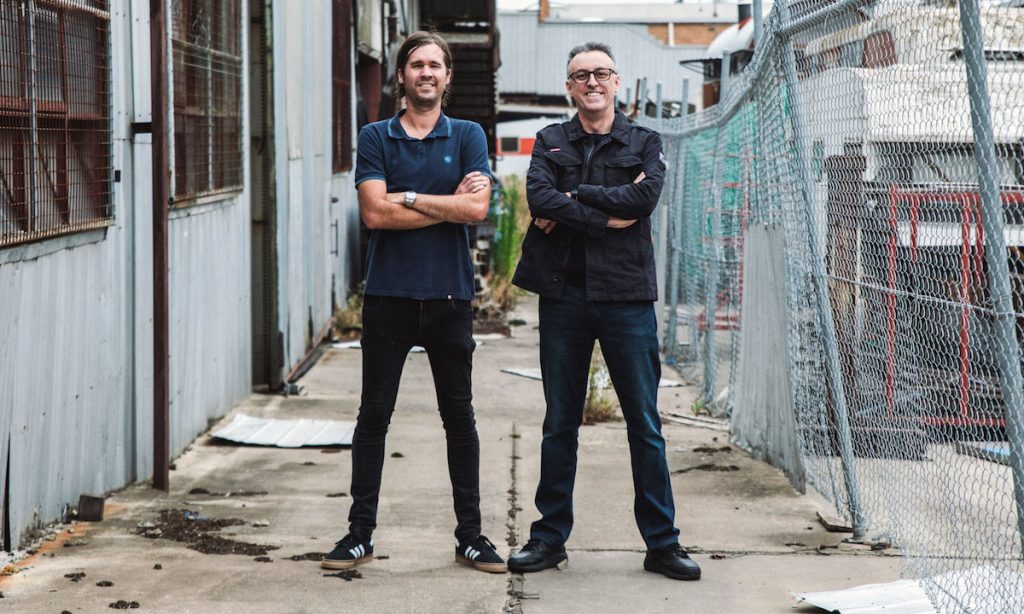
It’s hard to think of an Australian writer/performer who’s got as good an ear for characters as Tony Martin. And almost seven years on from the first episode it’s clear that he and Matt Dower (whose production skills are key to the show’s success) are showing no signs of running out of steam. In 2024, Sizzletown not only brought us the usual roster of reliably funny characters but also a fantastic sketch in which the famously sport-averse Martin took on the role of an AFL footballer commentator and unleashed a surprising new player onto the field. It’s the kind of weird inventiveness we rarely see in Australian comedy – in any medium – and the huge number of subscribers and supporters of Sizzletown prove that there’s a real, big, under-served audience for this type of humour.
Runner-up
Guy Montgomery’s Guy-Mont Spelling Bee
32% of the total votes

Guy Montgomery’s Guy-Mont Spelling Bee is the kind of show we’d like to see more of. The sort of show which takes an anything-can-happen comedic approach to a format that’s reliable but a bit dull. It wasn’t all brilliant: this started as a live show and needs some more work to turn into something that really works for TV – and it was in a timeslot that was way too long – but at least it wasn’t another serious quiz show aimed squarely at people aged 65+.
Winner
Fisk
51% of the total votes
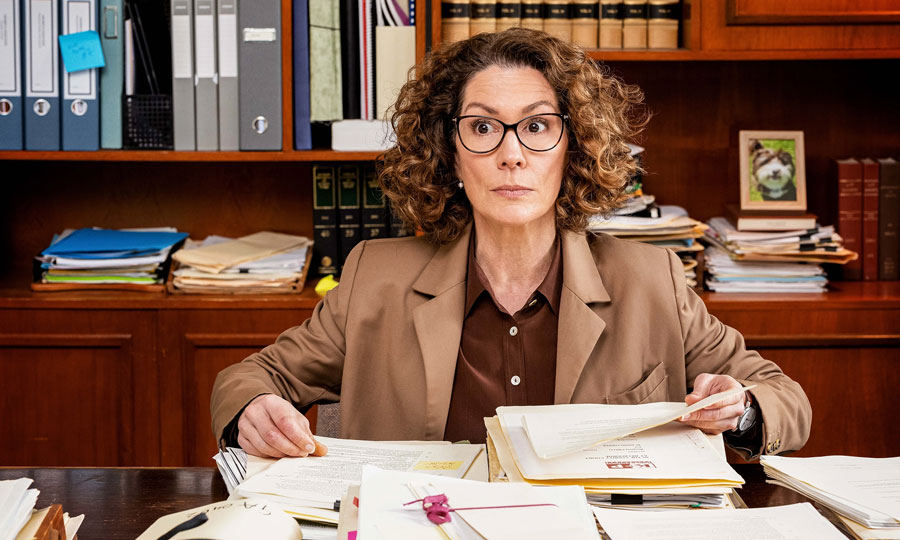
If Australian comedy in 2024 has taught us anything it’s that those in charge of ABC comedy don’t have a clue. We don’t want more comedy dramas or panel shows, we want more Fisks. Fisk is funny. Fisk picks up on and makes us laugh at the stupid stuff we see around us. Fisk has characters we look forward to seeing again. And people like Fisk. They watch it in huge numbers and want to see more of it. So, more episodes of Fisk would be great, for as long as the team can maintain the quality. But also we want more shows like Fisk. Shows that are just funny. Not shows about something, not shows trying to make us feel all fuzzy, but shows that make us laugh hard and loud.
What voters said about Fisk
Fisk continues to be top notch. Zero notes. More please.
Thank god for Fisk, a sitcom that just wants to be funny.
Number 1 is definitely Fisk. Every season has been outstanding.
We asked our readers… What did you think of comedy in 2024?
So much of it is people showing off on panels, and the rest is quirky drama. I couldn’t in good conscience vote for anything as ‘best’. It was all very disheartening
Not getting any better.
Marginally better than last year. At least a few new shows.
The good stuff was good, the bad stuff was horrendous and tired.
It was okay. Fresh Blood is always a highlight, and I wish more shows would get picked up from their pilots. I watched more Grouse House and Aunty Donna productions than I did terrestrial comedy television, and they are doing an insane amount to platform some incredible new comedians. Also, I want to marry everyone at Working Dog.
Is TV comedy just dying alongside broadcast TV?
Sizzletown was a rare highlight, Audrey was as bad as it got. Most everything else I stumbled across felt somewhere on the continuum of mediocre, forgettable and yet another effort by the same circle jerk of local ‘stars’.
Bleak. Grim. Sending me into a depression spiral.
Shocked (Fam Time release?!) dismayed (Shaun Micallef’s Eve of Destruction) and unsurprised (The Weekly still extant). Fisk and Guy Mont-Spelling Bee: solid and enjoyable in an otherwise demoralising year. With the public broadcaster our main source of local comedy production besides (and with) Working Dog, without serious internal shake-up there will simply be no more local TV. Fresh Blood being so meagre makes it clear that anyone who wants to produce episodic comedy in Australia should move overseas, because even the people supposedly here to help obviously hate it, and you.
2024 was the best year for comedy in living memory, which is not so much a compliment as it is an indictment of living memory. For all the chaff, there were the taut Working Dog shows, Guy Mont’s Spelling Bee, Fisk, VHS Revue, and probably a few others. Actually having multiple options felt like a cornucopia of riches, and if you can successfully ignore the other rubbish that fills the airwaves, you end up with a not-terrible, you can paint a pretty neat picture of Australian comedy. There are a lot of fresh faces populating these particular shows that give me some small hope for the future.
On the other hand, Shaun Micallef is doing interview shows and travelogues, and even if he does them better than anyone else, there’s something a bit depressing about seeing the commissioners unwilling to greenlight anything for our finest comedic mind but the most trad of formats. We can’t expect him to keep Milo Kerriganning forever, but there’s something a little canary in the coal mine about this particular evolution.
I didn’t watch much – but did see a lot of standup.
Behind Mitch McTaggart, the funniest person on Australian TV is Manu from MKR, which pretty much says everything about Australian comedy on TV in 2024.
As a person who is in favour of narrative comedy as a concept, thank god for Fisk – the sole bright spot in that particular area.
Hard to tell considering that it feels like it barely had a presence. Australian TV seems more focused on drama or reality TV and it’s been like that for a while.
The fact that Channel 7 decided to air a two-part special on The Best of The Russell Gilbert Show (a show that only had seven episodes!) as filler when they couldn’t be arsed to make Talking Footy during the Olympics probably tells you everything you need to know about how comedy is seen by the industry right now.
A mixed bag. A smattering of solid offerings, but mostly dross. Darn shame too; we used to be really good at making funny things but somewhere along the way, we forgot how. It’s nice to be nostalgic (TGYH), but the problem is – no TV network, no film studio, and no commercial radio business is going to take a chance on something new, something interesting, or something fucking subversive. We have become far too risk-averse in the media and it’s a sad state of affairs.
Best bet: find the funny elsewhere. Podcasts, stand-up comedy, improv shows, online humour publications, community radio or your weird mate in the cubicle next to you because unfortunately, traditional media doesn’t give a gold-plated shit about comedy in this country in 2024 and 2025 doesn’t look any brighter.
Almost entirely industrialised.
The best example of the Australian comedy industry in 2024 is the revamped Thank God You’re Here: Sure, Tom Gleisner and Shane Bourne have moved aside from their permanent on-camera roles to keep things fresh, but their replacements are all familiar faces with long careers, behind the scenes it’s still Tommy G making sure the show chugs along, and any genuinely newish faces can be relied upon to stick to the prompts and not step too far out of line. A good example of some other dying institutions too, really…
I want to be surprised one year in a good way. There were rumours of an Australian Office for a few years now but people laughed it off as stupid because who would believe that? Well fuck you, they did it. They held us down and spat in our mouths then told us we like it. And people did. That’s what we’ve come to. I’m expecting an Australian version of Family Guy this year because why not? Why the fuck not? It’ll be Andrew O’Keefe’s comeback project and we’ll gobble it up like silly little shits because we no longer know what comedy is.
As ordinary as ever. The loss of Mad as Hell is still felt.
Was I supposed to laugh?
Not bad. Fisk and Colin showed we can do narrative while the panels delivered. Some of the new stuff tried too desperately to be young though.
ABC seems more bland than usual these days. And why why why is The Weekly still on? It’s literally been on for a decade and it’s been bad the entire time. Surely it’s time for something new?
Too much “I’m shit, laugh at me” where there’s no actual joke. As in, no setup or follow through, no actual comedic device, no observation or twist… it’s just someone being shit at something. So anyway I’m just an old man yelling at a form in the cloud, if it’s making someone else happy good for them.
Meh. Aside from a few hits like Fisk and Day Job, I’ve been to funerals that are funnier than most stuff put out this year.
Perhaps the praise for Australian comedy isn’t that it is good, but that it’s being kept alive by a team of mad scientists attempting to mimic Frankenstein’s monster with an entire concept.
A roller-coaster ride of thrills and cringe.
I laughed at a few of these shows, so I’m pretty satisfied.
Pale and stale. A severe lack of originality, talent and creativity. With people like Shaun Micallef, Glenn Robins, and Working Dog, doing all the heavy lifting, it’s an indication that the contemporary class of today are nowhere near the high standard of the old warriors of comedy. How many times have we said this?
Apart from Fisk and The Cheap Seats, not a lot to get too invested in. If you are looking for fresh Aussie comedy, look to social media. It’s DOA on any screen bigger than your phone.
It was nice to see newer comedians platformed a bit more, but there could always be improvement.
Yet another year with little truly new comedy – even Guy Montgomery’s Spelling Bee has been done live and in NZ on channel 3 before.
Worse – it’s a lot of the old sad faces filling screens (I’m looking at you here Wil Anderson) where there should be the next generation come.
Weak and the ABC continues to make baffling choices. Felt pitiful looking at the list that the most interesting ones were from the shorts they released and no proper half hours.
There is no comedy in Australia and it is what we deserve.
Thank goodness for Kitty Flanagan. She and her team delivered where most others didn’t.
Tired, formulaic. Here’s to a brighter, funnier 2025.
The above is a selection of the many comments we received. Thank you for voting and commenting, and we’ll be back soon with reviews of comedies released in 2025…
Get voting now in the Australian Tumbleweeds Awards 2024!
Do you have views on Australian comedy in 2024? Of course you do or why are you here? Well, now’s the time to express them as you vote in this year’s Australian Tumbleweeds Awards.
As always, the categories are:
- Worst Sketch or Short Form Comedy
- Worst Sitcom or Narrative Comedy
- Worst Panel, Game or Stand-up Show
- Worst Topical or Satirical Show
- Worst Comedy Film
- Best New Comedy
- Best Comedy
Plus, you get the opportunity to rant about how awful/great each show/film was, with the best comments being featured in the awards announcement.
If you have time to spare over the Christmas/New Year period – or are just sick of spending time with your family – vote in the Australian Tumbleweeds Awards. Voting closes on Friday, 10th January 2025, with the winner announced on or around Australia Day 2025.
Vale Question Everything 2024
There are a lot of questions around Question Everything. Fortunately, most of them have pretty obvious answers. Well, except for the big one, but we’ll get to that.
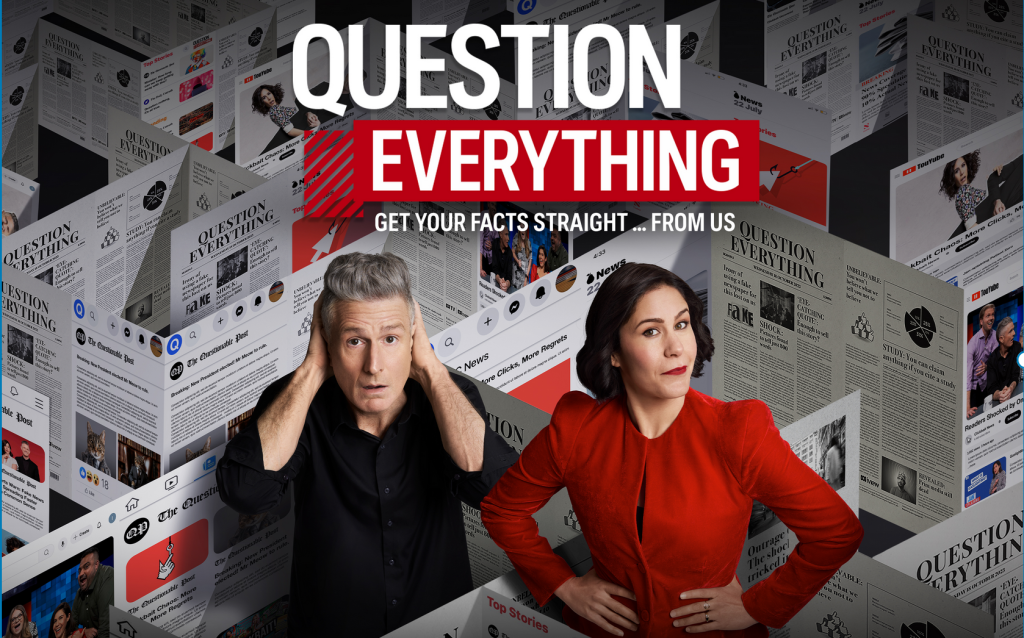
Question one: did they deliberately set out to make a show this shit?
Well, no: originally Question Everything was clearly an attempt at something akin to Gruen News, a look behind the curtain explaining why fake news and lazy coverage is the order of the day.
Question two: hang on, doesn’t the ABC already have Media Watch?
Sure does – that’s why this has stand up comedians! Thus defeating the entire purpose of the show and rapidly turning it into yet another panel show making jokes about news clips.
Question three: but a panel show about news clips doesn’t have to suck, right?
Sure doesn’t – and we’re lucky enough to have The Cheap Seats and Have You Been Paying Attention? to remind us of that on a regular basis.
Question four: so why does Question Everything suck? Wil Anderson has been funny in other shows and a lot of the panelists seem decent enough?
This is where it gets tricky. Traditionally the big problem with ABC comedy panel shows is that they don’t have enough comedy. They’re quiz shows, or they think they’re serious discussion programs, or they’re staffed entirely by smug ABC lifers nobody likes. But Question Everything is news comedy with decent guest comedians. Bullets dodged.
Instead, Question Everything seems designed to stifle anything close to decent banter. We get a news clip, then Anderson poses a question to one of the panelists – often a question barely related to what was funny in the news clip – and they cough up a slab of pre-fabricated material that would probably be okay in a completely different setting.
The problem is that, throughout the show’s development from semi-serious news quiz to whatever it is now, nobody has yet figured out a decent way for the comedians to interact with the clips. HYBPA? is a quiz show, no problem there. The Cheap Seats is just the hosts or the guest reporters presenting clips and then making jokes about them, also pretty easy to grasp.
But Question Everything has two hosts plus a panel. Anderson makes the usual jokes about the clip we’ve just seen, and then he… randomly throws to a panel member to… do something slightly related to the clip that’s just had all the comedy wrung out of it? They’re not news experts, they’re not experts on whatever the clip was about, and Anderson’s just done a bunch of jokes about the clip. What are we hanging around for?
Question five: aren’t I the one asking the questions?
Yeah, sorry about that.
Question six: aren’t you guys always going on about how Australian comedy just needs more shows, no matter whether they’re good, bad or average? If you’re constantly saying that we need a lot more forgettable shows if we’re going to build a sustainable industry that can deliver the occasional memorable comedy, then why isn’t Question Everything just another average show where people can learn about television and hone their skills?
Short answer: because it’s not good enough even for that.
Slightly less dismissive answer: a lot of the publicity for this year’s Question Everything was based on the idea that the show was really a training ground for up-and-coming television comedians. You could quibble with aspects of it (and we did) – the people being trained weren’t actually working on the real show, for one thing – but sure, why not.
Question Everything provides the TV training, Fresh Blood gives people a chance to make their own shows, there’s your production line right there. Only the production line leads directly to an ABC that is much more interested in training new comedians than putting to air shows that feature new comedians.
Bottom line is, the ABC doesn’t need any more comedy training grounds. What it needs to do is make more comedy.
When reviewing a series, “training ground” is code for “cheaply made with low standards”. But so what if these shows are sloppily crafted and hosted by tired faces? The real benefit for audiences comes down the line when a new generation of highly trained comedians are… well, they’re not on the ABC because the ABC only makes a handful of dramedies a year now and all the “entertainment” programs are hosted by middle-aged men who’ve already been hosting on the ABC for a decade.
When the ABC wants to train the next generation of journalists, they don’t invite them to pitch news stories or work on a fake news show out the back of 730. They hire them as cadets, pay them a proper wage, and send them out to cover the news (in some low stakes area under professional supervision). If the ABC was serious about comedy, they would hire fresh faces to work on their established comedy shows. Oh wait, they don’t have any left.
Question seven: So if all their comedy programs are now training schemes, why isn’t the ABC a registered training organisation on the Centrelink myskills website?
Fucked if we know.

